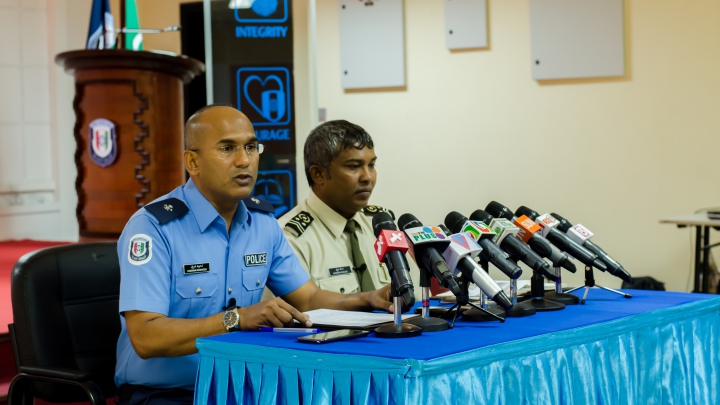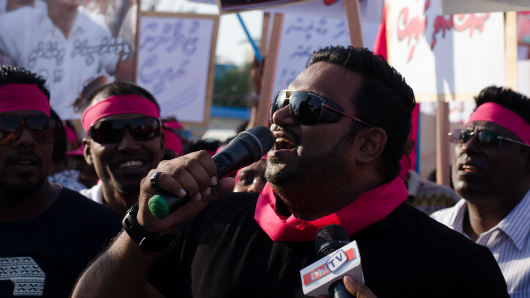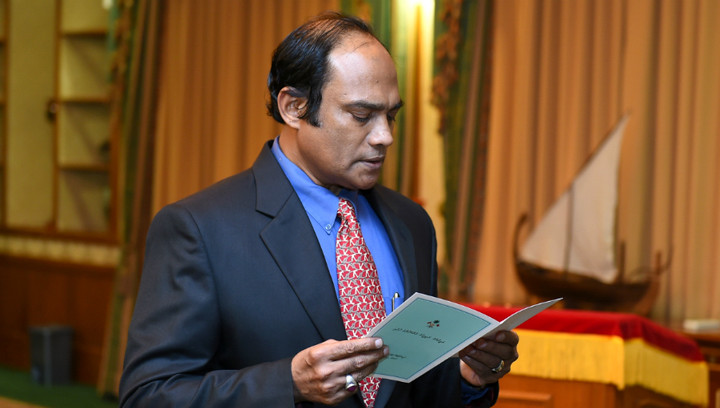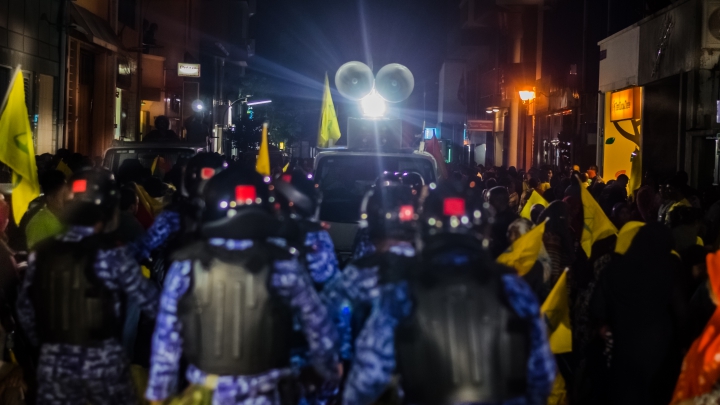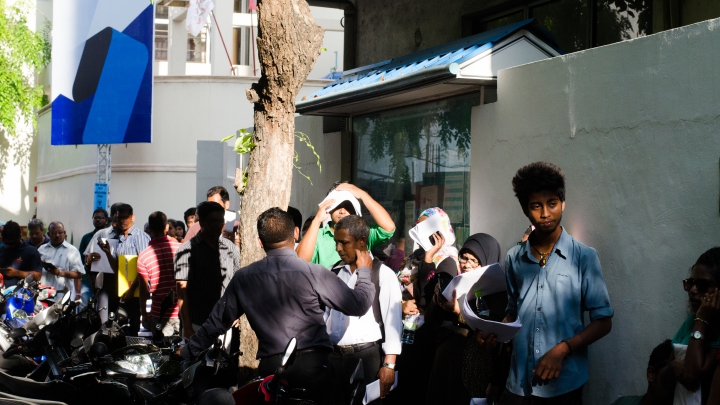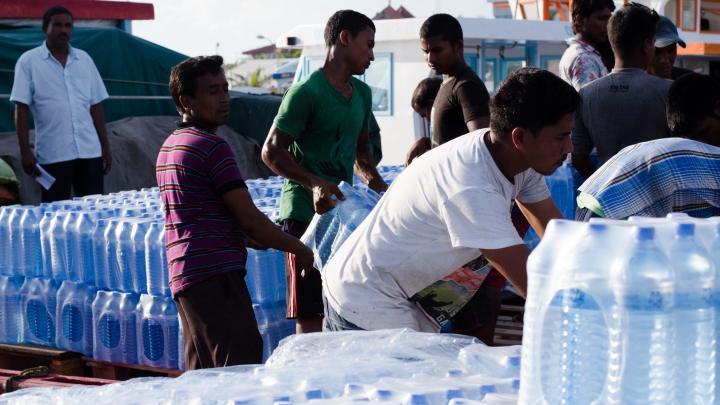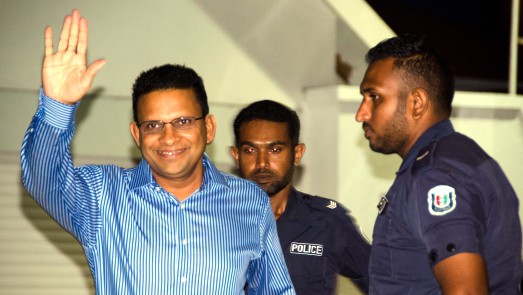Two Maldivians including an immigration officer have been arrested for helping nine Syrians to leave the Maldives on fake passports two days after they entered the country.
A 25-year-old immigration officer and a former colleague aged 29 were arrested for helping the Syrians, who were thought to be asylum seekers, to leave the country posing as Bulgarians, in exchange for cash.
The Syrians, who include three under-18s, were thought to be trying to reach Europe.
They were apprehended in Qatar after leaving the Maldives and have been sent back to Turkey, from where they started out, said police superintendent Hussain Rasheed in a press conference.
The nine Syrians entered the Maldives on March 27 with valid Syrian passports. Any nationality can secure a tourist visa on arrival.
The group left the country on forged Bulgarian passports two days later on March 29, with the help of the two Maldivians. They were caught with the fake documents at Doha International Airport.
Police investigated the case at the request of the immigration department, and found that the two Maldivians received a large sum of money for the illegal activity, said Rasheed.
Qatari intelligence shared vital information with Maldivian counterparts on the case, including access to the false passports, said Department of Immigration information officer Hassan Khaleel.
The nine Syrians were initially sent back to the Maldives under International Civil Aviation Organisation regulations, which say fake passport holders must be sent back to their last port of departure.
The group have now been flown back to Turkey after being questioned by police, said Superintendent Rasheed.
“We contacted the police to aid us in the investigation. We now have enough evidence to ensure the arrested pair will be sentenced,” said Khaleel.
“Immigration will not hesitate if they see this kind of misconduct from our staff. We have a zero tolerance for this,” warned Khaleel.
Rasheed said police did “not see the Syrians as dangerous”, and that they were believed to be refugees fleeing from the country’s civil war.
“We have received information they were on their way to a country in Europe,” said Rasheed.
“They decided to use Maldives as their transitory port.”
Khaleel said they did not believe that others were involved in the scam, and that they had no evidence that the arrested pair had helped others to use fake documents. This is the first time an immigration officer has been caught helping people to leave the country on forged passports.
Some 90 people, mostly from the Middle East, were caught trying to enter the Maldives on fake passports last year and another 41 this year, said Khaleel.
Meanwhile, two immigration officers were among a dozen Maldivians who travelled to Syria to join the Islamic State militant group earlier this year.
Immigration officers have also been accused of involvement in fraud against low-paid migrant workers. Former high commissioner for Bangladesh Selina Mohsin made the claim in an article for the Dhaka Tribune last week, accusing the department’s staff of helping to to defraud migrants from Bangladesh by making false promises of well-paid jobs.
However, the accusations were denied by the department, which said that its officers would not be at a position to commit this fraud as they do not select the workers coming to the Maldives.
